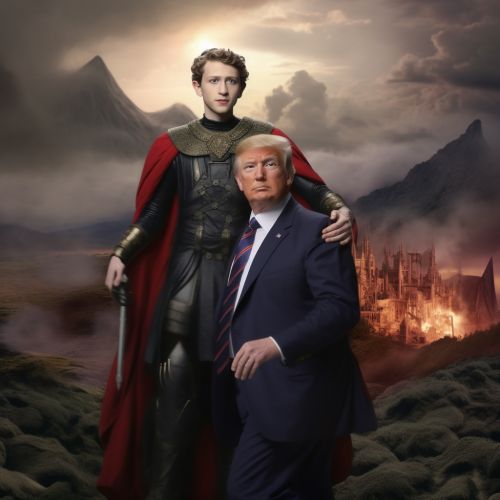Meme
Definition and Origin
A meme is a concept, behavior, or style that spreads from person to person within a culture. The term was coined by British evolutionary biologist Richard Dawkins in his 1976 book, "The Selfish Gene". Dawkins used the term to explain the way cultural information spreads. He derived the term from the Greek word 'mimeme', which means 'imitated thing', and shortened it to 'meme' to rhyme with 'gene'.


Types of Memes
Memes can take many forms, including phrases, images, videos, and hashtags. They are often humorous or satirical and are shared widely on the internet, particularly on social media platforms such as Facebook, Twitter, and Instagram.
Image Memes
Image memes are one of the most common types of memes. They typically consist of a picture, often a stock photo, with a caption written in a specific font, usually Impact. The image is used to convey a particular emotion or situation, and the caption provides the context or punchline.


Video Memes
Video memes are short clips that are shared and remixed by internet users. They often originate from popular movies, TV shows, or viral videos. The clips are usually edited and given new captions to convey different meanings or contexts.


Text Memes
Text memes are phrases or sentences that are shared and altered in various ways. They often originate from popular culture or internet subcultures and are used to express a wide range of emotions, reactions, and ideas.


Meme Culture
Meme culture refers to the community of internet users who create, share, and react to memes. This culture has its own set of norms, trends, and in-jokes, and it plays a significant role in shaping internet culture as a whole. Meme culture is often associated with younger generations, particularly millennials and Gen Z, who are active internet users.


Impact of Memes
Memes have a significant impact on society and culture. They are a form of communication, allowing people to express their thoughts, feelings, and ideas in a creative and often humorous way. Memes can also spread information, shape public opinion, and influence political discourse.
Communication
Memes are a modern form of communication. They allow people to express complex ideas and emotions in a simple and easily digestible format. Memes can convey a wide range of messages, from personal experiences and emotions to social commentary and political critique.


Information Spread
Memes can spread information quickly and widely. They are often used to share news, raise awareness about social issues, and spread educational content. However, this can also lead to the spread of misinformation or propaganda.


Political Influence
Memes have become a significant tool in political discourse. They are used by politicians, activists, and ordinary citizens to express political views, critique opponents, and mobilize supporters. However, they can also be used to spread political misinformation and propaganda.


